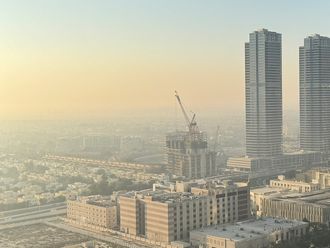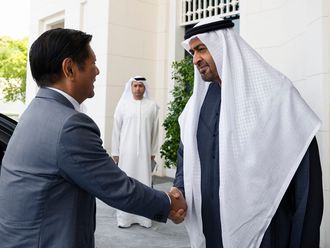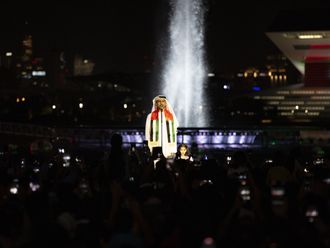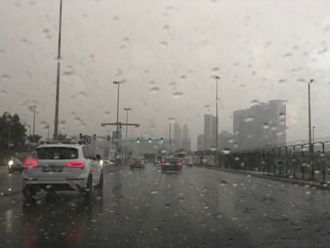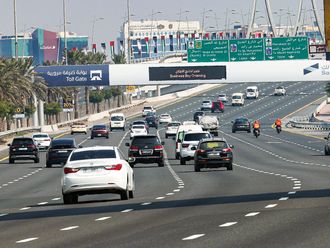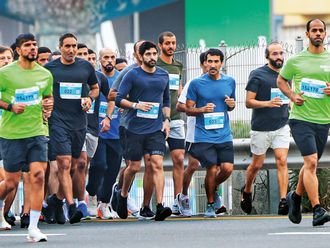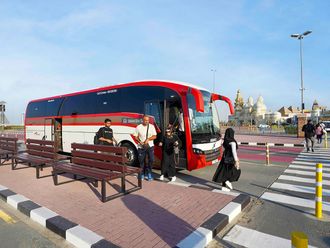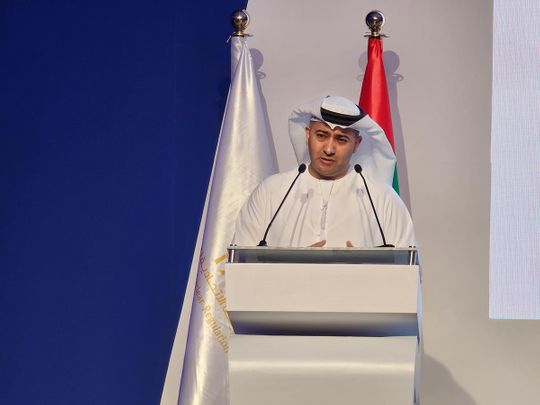
Abu Dhabi: The UAE has designated February 16 as the Professional Day of Nuclear and Radiation Safety Workers in order to honour the workers in these vital fields.
February 16 marks the day in 2020 when sector regulator, the Federal Authority for Nuclear Regulation (FANR), issued the first operating licence for the Barakah Nuclear Power Plant, allowing its Unit 1 to begin operations. The Barakah Nuclear Power Plant is now the largest single source of clean electricity in the region with its two commercially operating units.
Raising awareness
The newly announced professional day, approved by the UAE Cabinet, aims to raise awareness and share knowledge about the UAE’s achievements and major progress in the development of the nuclear and radiation sectors. It also seeks to celebrate the work and efforts of the professionals who made the UAE nuclear energy programme growing at a commendable and unique rate, making the UAE as a role model for nuclear newcomer countries.
“The annual celebration of this day will shed light on the success stories, the achievements and tireless efforts made by the workers in both the nuclear and radiation sectors in the UAE. In 2008, the UAE introduced its peaceful nuclear programme, which it has been developing over the years. The UAE’s success has been possible thanks to the human capital — the most valuable capital — that has been the cornerstone of this programme. This includes the professionals, workers in the nuclear as well as in the radiation sector, Emiratis and expatriates, working in the public and private sectors, in industry, healthcare, and others,” Hamad Ali Al Kaabi, the Permanent Representative of the UAE to the International Atomic Energy Agency (IAEA) and deputy chairman of the FANR board of management, said at the launch.
Growing number of workers
The UAE’s nuclear and radiation safety sectors include thousands of workers, including 250 workers at the FANR alone, and more than 3,000 workers in the nuclear programme, employed by Barakah plant owner, the Emirates Nuclear Energy Corporation (ENEC), and its various subsidiaries like The Nawah Energy Company. Nuclear and radiation safety workers are also employed across a variety of other sectors, including the medical, agricultural, industrial, and quality sectors.
“These workers contribute to the security of the various sectors they work in, and enable development, yet their role is not well known. This Professional Day will shed light on their roles, and also encourage more people to join the sectors,” Al Kaabi told Gulf News on the sidelines of the press conference, which was itself held as part of the IAEA’s International Conference on Effective Nuclear and Radiation Regulatory Systems.
“FANR also proposed the Professional Day to the UAE Cabinet because sectors employing nuclear and radiation safety workers have grown in size to include a significant number of workers,” he added.
Female and Emirati participation
Official statistics show that more than 60 per cent of nuclear workers in the UAE are Emirati. The sector also boasts significant female participation, with more than 40 per cent of FANR employees, and 20 per cent of ENEC and Nawah employees, being female at present.
According to the Cabinet resolution, FANR will lead the organisational matters associated with the professional day and its annual celebration. It is expected that the day will encourage youth to explore opportunities in the field. The celebration will also generate more awareness among the community about the efforts and achievements of nuclear and radiation workers, allowing for further scientific advancement and knowledge transfer.
International meeting
This year, the UAE has also played host to the IAEA’s international conference, strengthening its position in the nuclear regulatory sector. The three-day conference, which kicked off on Monday (February 14), has seen the participation of more than 400 international regulators and officials. A number of major discussions involved the challenges posed by climate change to nuclear safety, the growing role of Artificial Intelligence, and the need to regulate and standardise future nuclear and radiation tech.


